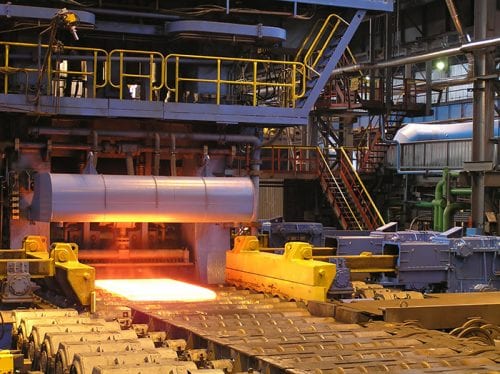By Brad Buecker, Technical Publicist
Nearly a decade ago, cooling water experts at ChemTreat developed a non-phosphorus (non-P) replacement chemistry for the inorganic and organic phosphates (aka phosphonates) that have, for four decades, been standard treatment for thousands upon thousands of cooling towers and systems in North America. This chemistry, with the trade name of FlexPro®, not only offers better corrosion protection than phosphates/phosphonates in many systems, but it reduces or eliminates phosphorus discharges from cooling tower blowdown. Minimization of phosphorus discharge has become very important following the increase in toxic algae blooms in many areas of the country. These algae blooms kill fish and other aquatic creatures and can even be toxic to humans and domestic animals.
The steel production process involves much heat transfer (in numerous locations), so steel-making requires large volumes of water to cool furnaces, furnace off-gases, hot rolling machines, and other equipment. FlexPro® products can be beneficial for cooling system corrosion protection in the steel industry. However, the chemistry is now finding application in another extremely important aspect of steel production: imparting corrosion protection to solid steel during direct contact cooling, and to the same steel that has been converted to slab, plate, coiled rolls, and other forms. Without treatment, these materials are subject to atmospheric corrosion that can degrade the quality and value of the material.
Phosphate-based compounds have been extensively utilized for treatment of the water that serves as direct contact cooling at steel plants, but as with phosphate/phosphonate treatment in cooling systems, the chemistry can be rather inefficient and difficult to control. Also, the issue of phosphorus-containing wastewaters, and how to treat them, remains. FlexPro®, based on chemistry known as reactive polyhydroxide starch inhibitor (RPSI), establishes a direct protective barrier on steel surfaces that shields the metal from the external environment. Thus, during spray cooling/oxide removal processes, and/or following downstream heat treating/annealing applications and pickling, a protective layer is established on the metal.
FlexPro® has become well-known as a modern technique to inhibit corrosion in cooling water systems across a variety of industries. But now, applications in the steel industry outline its capabilities at protecting intermediate and finished products from atmospheric corrosion.
For more information on this technology, please contact ChemTreat. The reader may also refer to the paper, “Advances in Cooling Water Treatment for the Steel Industry” which was presented at the 2019 AISTech conference and will be reproduced in the May 2020 issue of Iron & Steel Technology magazine, the official AIST publication.
Please contact ChemTreat for assistance in designing a treatment program customized for your application. Like all other technologies, due diligence is necessary to determine the feasibility for utilizing methods. Always consult your equipment manuals and guides.

